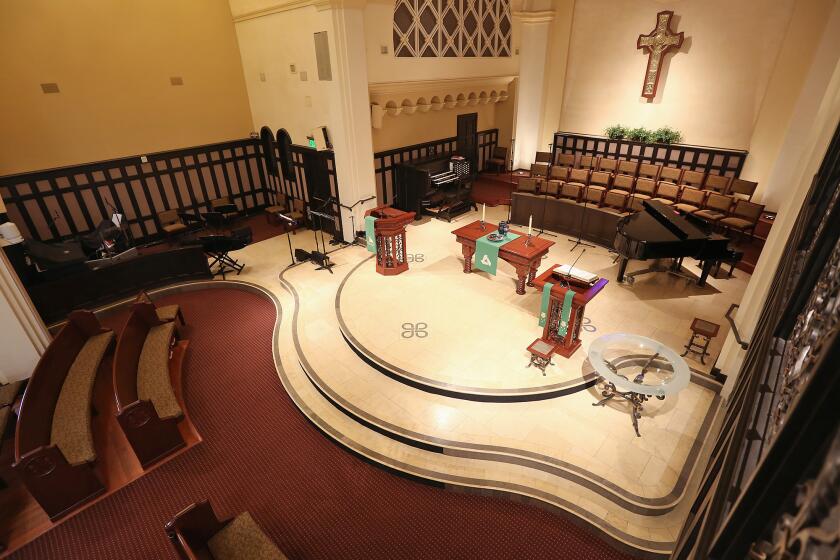Less leeway ahead
Whether they’re dumping paint down a storm drain or building an illegal extra apartment onto their home, people who break Newport Beach’s city codes may soon get squeezed by tougher enforcement.
“We tend to operate on a complaint basis rather than going out and looking for code violations,” said Assistant City Manager Dave Kiff — but that may be about to change.
City officials are crafting plans for stepped-up code enforcement that could include shorter grace periods to fix violations, more citations and higher fines for some violations, and more actively pursuing nuisance complaints. The City Council also put $100,000 in the 2007-08 budget to boost enforcement of city codes.
Newport Beach’s code enforcement officials are responsible for a wide variety of issues: nuisances such as noise, water-quality problems like pollution, and zoning code violations including construction without permits.
Some of the targets of increased enforcement likely will be illegal boarding houses, which in some cases present themselves as permitted sober living facilities.
Residents also have urged the city to do more about drug and alcohol recovery homes that don’t follow the rules, and a recent survey showed complaints about the noise and trash generated by beach house vacation renters.
The effects of inconsiderate neighbors are felt more strongly on the Balboa Peninsula and in West Newport because the lots tend to be long and narrow, with houses in some cases only six feet apart, according to a city report. And as the city has become built-out and more uses involving short-term residents have moved in, the number of complaints to the city has increased.
“Any kind of nuisance that impacts the quality of life of our residents, we’re just seeing more of those nuisances,” Kiff said.
Under the more aggressive approach proposed by city staff, which the City Council will consider Tuesday, Kiff would coordinate a team of the city’s four code-enforcement officers and one division manager, as well as outside legal counsel. Enforcement personnel would be able to investigate complaints from people “that an enforcement officer deems reliable,” rather than just written complaints.
One of the limitations with code enforcement now is that officers need to have probable cause to inspect. They can’t enter someone’s private property based on a vague, anonymous complaint, said John Kappeler, manager of the code and water quality enforcement division.
“If I don’t have a valid complaint in my hand, I don’t have enough reason to knock on somebody’s door and ask for or demand an inspection,” he said.
Residents can help by gathering detailed information about violations they see, but stricter enforcement means they’re more likely to get nabbed for their own violations — say, using their garage for storage instead of parking.
“I think the important thing that we would want to get out to the community is this new aggressive approach would not just be in West Newport or the Balboa Peninsula,” Kiff said. “The solution is going to have to apply to everybody.”
All the latest on Orange County from Orange County.
Get our free TimesOC newsletter.
You may occasionally receive promotional content from the Daily Pilot.



